Blog Archives
My Ultimate Compilation of Russian/ Soviet Official and Alternative Anthems
#SongsoftheGreatCountry
#ВеликиеПесниВеликойПобеды #GreatVictorySongs
________
This is post 2 in my Russian / Soviet Music for Posterity series. This entire month I’m dedicating to two major events:
- The Mystery of the Russian Revolution (Centennial of the Russian 1917 Revolution)
- Perhaps a bit more modest, but a notable event in my book 😉 — my release of EARTH SHIFT WEBINAR 6: THE PUTIN ENIGMA, the powerful culmination of the Multidimensional Geopolitics Series.
In this post I have collected for you some very cool YouTube clips showcasing the main Russian / Soviet anthem, as well as the alternative ‘people’s anthems,’ so to speak. These are the kinds of songs that not only outlived the USSR, but also remain people’s favorites, touching millions in ways that cannot be described, despite huge changes Russia underwent in the past decades.
All of these were written in different times in the USSR. I choose the clips I personally prefer, as well as the ones containing English subs, so you can all follow the memorable lyrics. Coupled with the music, in my view, these are some of the most powerful songs ever written.
The real soul of any culture and any nation is expressed through the quality of their songs. These songs really stand out and they say a lot about the true nature and soul of Russia and the USSR.
That’s my opinion, and what’s yours? Don’t worry, it’s an open discussion, and if someone feels compelled to bash ‘those damn commies’ — as is so common for the sheeple — be my guest, although I would prefer a higher level of discussion and more intelligent comments than that.
As I’ve told you all before, it was never about communism — it was always about Russia The Great Balancer being a threat to the yang and aggressive West’s expansionism. Or as Lenin would have called it ‘Western imperialism’ — the same thing we today refer to as globalism, one world government and NWO. In other words, Lenin called it 100+ years ago.
We’ll talk some more about the TRUE role of Russia The Great Balancer and the 1917 revolution in EARTH SHIFT WEBINAR 6: THE PUTIN ENIGMA!
***
Below there are three songs, and several versions of each. If you enjoy them, vote in the comment section which song and which version grabs you and why.
ANTHEM OF RUSSIA — OFFICIAL VERSION. (Note that it is the same anthem as the USSR’s, denoting continuity, but the lyrics have been somewhat modified — by the original Soviet lyrics author, Sergey Mikhalkov.)
ANTHEM OF RUSSIA – contemporary version. Crimea, 2015 — ENG SUBS
ANTHEM OF RUSSIA — cool flashmob on Red Square
ANTHEM OF RUSSIA – rock version
ALTERNATIVE/ POPULAR RUSSIAN ANTHEM 1 — VICTORY DAY (Soviet song dedicated to the difficult victory in WWII – The Great Patriotic War. One of the most popular Soviet/Russian songs ever written, still brings tears to people’s eyes.)
VICTORY DAY — Contemporary version, by original performer Lev Leshchenko. Notice the crowd of young people singing along!
VICTORY DAY — flashmob in Novosibirsk, Siberia on May 9.
VICTORY DAY — with ENG SUBS
ALTERNATIVE/ POPULAR RUSSIAN ANTHEM 2 — SO VAST IS MY MOTHERLAND. This easily could have been the official Russian anthem, if Russia already didn’t have one of the best anthems out there.
The original SO VAST IS MY MOTHERLAND performance, episode from the hit 1936 Soviet film Circus (Цирк), 1936. This is the story of a white American performer who arrives from the racist USA to Moscow to perform her dangerous circus act, and who falls in love with a handsome Russian, while being ashamed of having to hide from everyone her black baby… until she, to her great surprise, learns that in the USSR it’s not a problem at all.
The official performance of SO VAST IS MY MOTHERLAND, 1930s recording, ENG SUBS
SO VAST IS MY MOTHERLAND – contemporary version, The Young Russia Festival, Red Square
DON’T MISS POST 1: ‘Dance Russia and Cry Europe’ ~ Hit Clips About Putin and Russia
Kiev Tries to Ban Russian Language – Ukrainians Respond with Russian Song Katyusha
This is the follow-up to my previous posts:
- Ukraine Events Heating up and Accelerating
- Beautiful Russian-Soviet Song Flash Mobs Unite Russians and Ukrainians Against Kiev Junta Hatred
In Beautiful Russian-Soviet Song Flash Mobs, I showed you how people in Zaporozhie, Kharkov, Odessa and Moscow countered the vicious hatred emanating from Kiev junta, and how they said no to repressions against Russian language in Ukraine.
The new additional data coming in on the repressions against Russian language: Kiev Rada will be voting on the new law, which is supposed to limit Russian language programming on TV and radio to 5%. Already, most Russian films, all Russian-languge TV/radio stations and publications are banned in Ukraine, except the openly anti-Putin and anti-Russian ones.
There is another radical ukro-nazi proposal awaiting a vote in the Rada. It calls for the Russian speakers who always resided in Ukraine to be denied citizenship and the right to education. Ukraine is following in the footsteps of Latvia and Estonia, the euro-fascist members of the EU, where millions of Russian-speakers are denied citizenship and given a label of ‘non-citizens.’ Who needs Hitler…
This last one was proposed by an infamous deputy from Western Ukraine, Irina Farion, who during Soviet times used to be a member of the Communist Party, but when it became profitable, she promptly switched to the ukro-nazi side of the most vicious kind. She reminds me of the Lithuanian ‘president’ installed by the US, Dalia Gribauskayte, also once a Communist Party member and daughter of a KGB (NKVD) officer, who turned the moment US/EU promised her those proverbial 30 pieces of silver.
Another law being passed mandates that no signs in Russian language can appear in airports and train stations, despite the fact that 70% of Ukraine prefers to speak Russian. The mandated languages for public announcements and signs in Ukraine airports and train stations will be Ukrainian and English.
There are many more acts of repression towards Russian language and culture in Ukraine.
After all this, is it any wonder that normal people are leaving Ukraine by millions? The problem with that is: if everyone normal leaves, who will be left? Only imbeciles, sheeple and low-lives? This, unfortunately, is a very worrying ongoing trend in Ukraine. For more read: Mass Migration: What Happens if a Country Gains or Loses its Life Force? (US, EU, Russia, China, Ukraine).
Many leave, but some choose to stay and hold the fort, no matter how hard it is, until a meaningful change can occur.
To say NO to all the repressions, the new Flash mob “The Russian World” was born in Zaporozhye, Eastern Ukraine. The industrial city of Zaporozhye, located on the banks of the River Dnepr, next to Donbass and not far from Donetsk, was the seat of the Soviet 1930s industrialization. Read more about it in the articles linked at the bottom.
After the Russian-Soviet song flash mobs in Zaporozhye, Kharkov, Odessa and Moscow, Dnepropetrovsk has joined in. Dnepropetrovsk is a large city and an oblast located between Zaporozhye and Donetsk oblasts in Eastern Ukraine.
The Dnepropetrovsk Train Station flash mob sang the famous Russian song Katyusha. Here’s the first amateur video of the Katyusha flash mob:
Better quality full version of the Dnepropetrovsk Katyusha flash mob has posted on YT:
You can find some original versions of Katyusha in Legendary Soviet Music Hits.
And this is Katyusha by the Red Army Choir:
I also found this, with Eng subs:
READ:
- Sister post: Beautiful Russian-Soviet Song Flash Mobs Unite Russians and Ukrainians Against Kiev Junta Hatred
- Sister post: Ukraine Events Heating up and Accelerating
- Insane Asylum Overload: Ukraine Bans Communism – Goodbye Chinese Investments (there is more about Zaporozhye and Odessa here, incl. pics)
- Don’t miss! Raising Chi Against Hatred: The Suppressed Story of Russian Songs that Unite World Cultures
- More Russian/Soviet song links
Beautiful Russian-Soviet Song Flash Mobs Unite Russians and Ukrainians Against Kiev Junta Hatred
Since 2014 Kiev junta banned Russian language during school classes. Now every teacher is mandated to speak only Ukrainian in class, and so are students. In 2014 and 2015 the historic symbolism uniting Russia and Ukraine was banned. Many historic monuments were destroyed throughout Ukraine as well. Ukro-nazi thugs from the ‘right sector’ Svoboda and various nazi battalions brutally beat up and even killed those who tried to resist. Among things banned in Ukraine have been the Victory Banner (symbol of the WWII Victory), names of cities and streets. They succeeded in renaming one of the largest cities in Ukraine from Dnepropetrovsk to Dnepr. They tried to rename Odessa to Kotsyubeevsk (if you can believe it), but met with staunch resistance from Odessans, which made them back off.
The newest thing the Kiev junta is doing is banning Russian language during school breaks. Teachers caught speaking Russian will be fired.
In the atmosphere of the oppression, the people are finding ways to resist in a beautiful and inspiring way, by performing Russian-Soviet songs at train stations.
It began on November 13 in Zaporozhye, the large industrial city in Eastern Ukraine, located next to Donbass. The city of Zaporozhye is located in the very center of the ancestral Zaporozhskie Cossack territories. Zaporozhye means basically ‘beyond the white waters.’ It is located on the banks of the river Dnepr and it is the white waters of the river that gave it its name. The city was founded by the Russian tsars; in 1930s it became the center of the Soviet industrialization. It is the sight of the famous symbol of the Soviet industrialization DneproGes (Dnepr Hydroelectric Station). It is also the home to the metallurgical giant Zaporozhstal’ (Zaporozhye Metal Plant). Europe’s largest nuclear power plant is also built here. I again want to stress that everything that has been built in Zaporozhye was built by either the Russian Empire or the USSR. During its 25 years of ‘independence’ Ukraine built nothing of significance. On the contrary, much was ruined and stolen. More here: Insane Asylum Overload: Ukraine Bans Communism – Goodbye Chinese Investments.
The first flash mob at the Zaporozhye Train Station sang the song from the hit Soviet film, The Spring on River Street, 1956. The Spring on River Street is a romantic comedy about a worker from Zaporozhstal’ and a young teacher, fresh out of college. The song is called, My Native Street. This song is sort of unofficial anthem of Zaporozhye.
I have to say that after I heard this flash mob several days ago I can’t stop humming this song, which I’ve always loved.
Flash mob at Zaporozhye Train Station, November 2016. Russian-Soviet song: My Native Street:
And this is the original from 1956, with the clip from the film The Spring on River Street. Улица родная – Весна на Заречной улице. You can find this film and this song featured on my RUSSIAN FILMS page. Incidentally, the film was made by the Odessa Movie Studio.
**SORRY IF ANY OF THE VIDEOS AREN’T SHOWING! THIS MEANS YOUTUBE REMOVED THEM FOR SOME REASON. I HAVE NO CONTROL OVER THAT! ENJOY WHAT YOU CAN WHEN YOU CAN!
Kharkov, the 2nd largest city in Ukraine and the former capital, was next. At the Kharkov Train Station the flash mob performed another hit from the same era, The Old Maple, from film Devchata (Girls), a romantic comedy by Mosfilm (Moscow Film Studio).
This is the original with the clip from Devchata:
Odessa Train Station flash mob was the largest and it performed the hit Russian-Soviet song Smuglyanka (Darkie, the Moldavian Girl) from the famous 1973 film Only Old Men Go into Battle. I believe this masterpiece of a film was made at the Kiev Movie Studio. It was during Soviet times, of course, before Kiev sold out and destroyed everything previous generations stood for. It is action/drama about the multi-ethnic unit of the Soviet pilots during WWII, who loved to sing. This film is also featured on my RUSSIAN FILMS page.
The choice of a song was good for Odessa, a very international city, as well as it being a close neighbor to Moldova. It also was a gutsy choice, since Soviet symbolism, including Russian WWII symbols, is banned in Ukraine.
This is the original Smuglyanka by the Red Army Choir
In response, Russians organized their own flash mob in Moscow, at the Kiev Train Station. Yep, there is a train station in Moscow that is called ‘Kiev Train Station’ where trains from Kiev terminate. It was always there, and it doesn’t occur to anyone to rename that station, unlike the war on everything Russian in Ukraine. In reality the most popular train in Ukraine is Lvov-Kiev-Moscow, despite all the bans of the Kiev junta.
The song at the Kiev Train Station is called Rozpriagaite Hloptsi Koney (Boys, Unsaddle Your Horses). It is a Cossack song, sung in Ukrainian, or more precisely, southern Russian dialect. My mom loved that song.
In the end of the clip the lead of the group Yarilov Znoy (Ra’s Heat) says that they organized the flash mob to show that, despite all the hateful rhetoric, Russians and Ukrainians are one people, sharing one history.
Related articles:
- Ukraine Events Heating up and Accelerating
- Insane Asylum Overload: Ukraine Bans Communism – Goodbye Chinese Investments (there is more about Zaporozhye and Odessa here, incl. pics)
- Don’t miss! Raising Chi Against Hatred: The Suppressed Story of Russian Songs that Unite World Cultures
- More Russian/Soviet song links

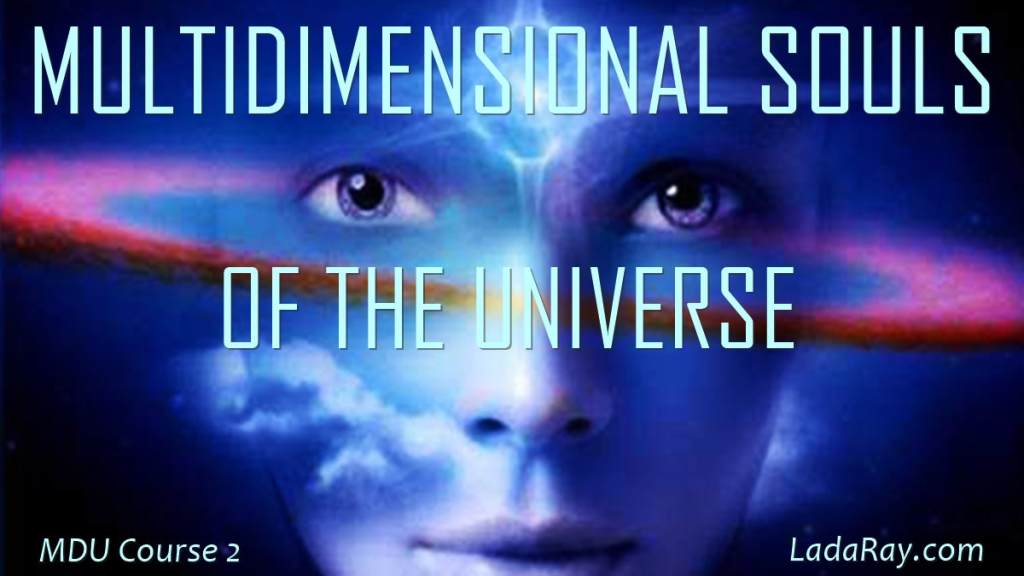





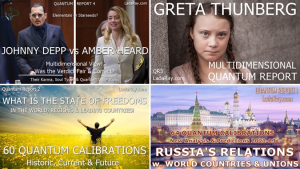
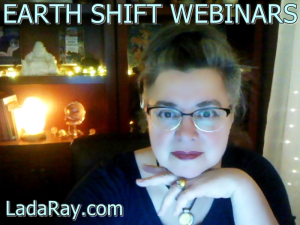
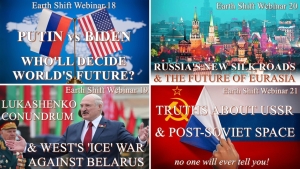









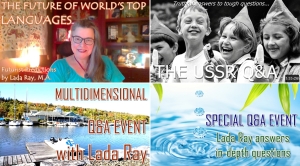







You must be logged in to post a comment.